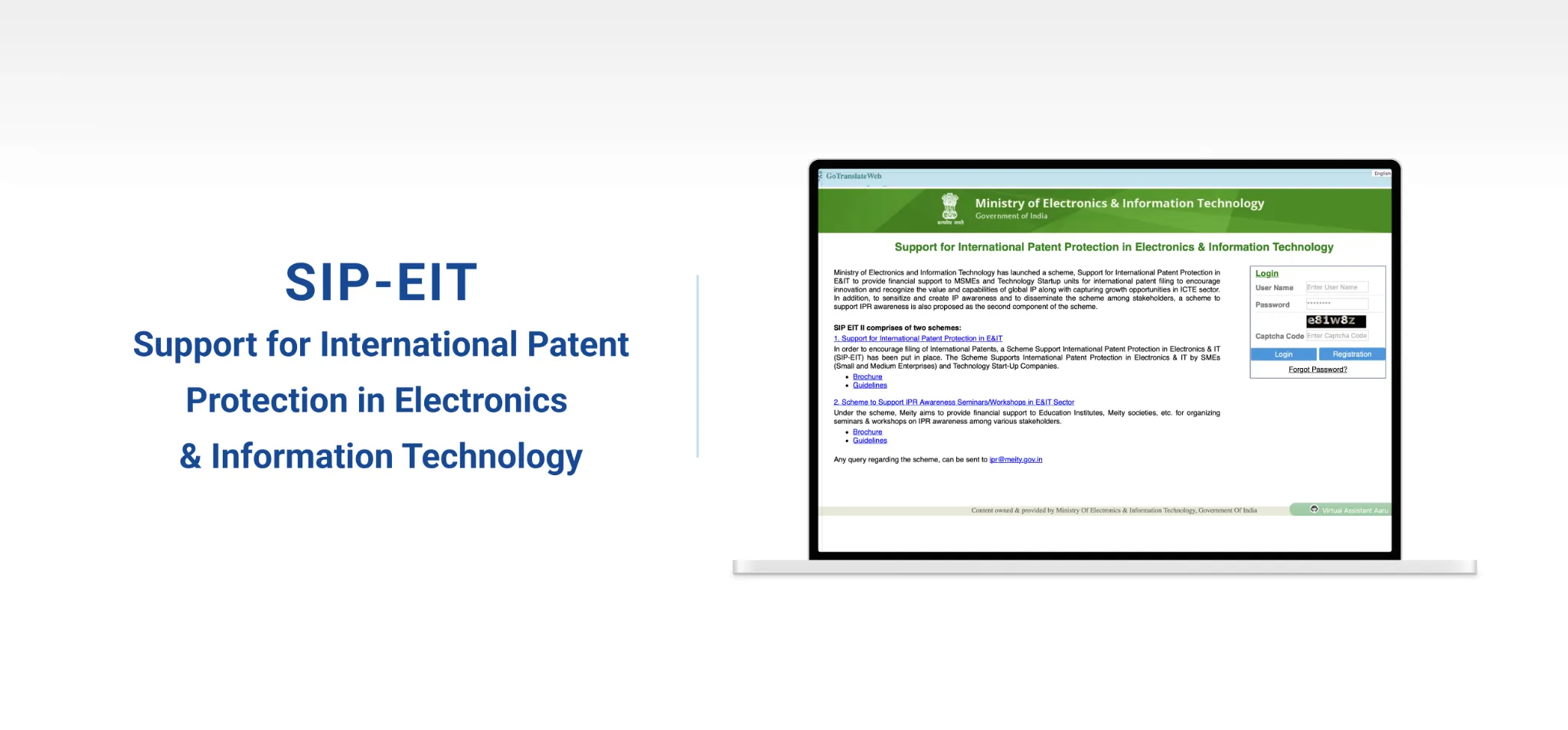Are you an aspiring entrepreneur ready to make your business official? If so, one of the critical decisions you'll need to make is choosing the right business structure. From Private Limited Companies (PLCs) to Limited Liability Partnerships (LLPs) to One Person Companies (OPCs), each structure offers its own set of advantages and considerations.
In this blog, we'll explore the nuances (features & differences) of these three popular business structures - Private Limited, LLP, and OPC—and provide insights to help you make an informed decision that aligns with your entrepreneurial goals.
Table of Contents
Difference between Private Limited, LLPs & OPCs
Now that we've introduced the differences between these three types, let's explore their features and registration processes more thoroughly. This will help you determine which one is the most suitable for your business needs.
Private Limited Company: Features
In India, the Private Limited Company stands as the predominant choice for company registration, governed by the Companies Act of 2013 under the jurisdiction of the Ministry of Corporate Affairs (MCA). This structure is favoured by startups and businesses aspiring for growth and stability, owing to its adaptable ownership model and efficient management practices.
Outlined below are some key characteristics of a Private Limited Company:
1. Limited Liability
- Shareholders enjoy limited liability, safeguarding personal assets from business debts.
2. Separate Legal Entity
- Regarded as a distinct legal entity from its shareholders, allowing it to engage in contracts, own assets, and litigate under its name.
3. Ownership
- Owned by shareholders who possess shares in the company, with ownership transfer facilitated through share transactions.
4. Management
- Managed by appointed Directors, while day-to-day operations are overseen by management, with significant decisions often requiring shareholder approval.
5. Shareholders
- Requires a minimum of two shareholders and can accommodate a maximum of 200.
6. Regulation and Compliance
- Governed by the Companies Act and regulated by the Ministry of Corporate Affairs, mandating compliance with annual financial filings, general meetings, and statutory record maintenance.
7. Investment and Funding
- Attracts investment and funding relatively easily due to its defined ownership structure and limited liability feature.
Private Limited Company: Registration in India
The Ministry of Corporate Affairs (MCA) has introduced a streamlined and online process for company incorporation known as Simplified Proforma for Incorporating Company Electronically Plus (SPICe+), comprising two parts: Part A and Part B.
The steps are as follows:
1. Step 1: Apply for DSC
- Obtain a Digital Signature Certificate (DSC) from Certifying Agencies (CAs) with either one or two-year validity.
2. Step 2: Apply for Name Approval
- Apply for name using SPICe+ Part A which facilitates 'Name Reservation' with the provision for two proposed names and one re-submission (RSUB).
Note: While simultaneous application for name approval (Part A) and Incorporation (Part B) through SPICe+ is feasible, only one name can be reserved.
3. Step 3: Apply for Company Registration & Other Applications
- Following name approval, apply for Company Registration using SPICe+ Part B, which also includes the application for allotment of Director Identification Number (DIN), Permanent Account Number (PAN), Tax Deduction and Collection Account Number (TAN), etc.
4. Step 4: Apply for a Bank Account
- Open a current account for your company to facilitate seamless financial transactions and business operations.
5. Step 5: File the Commencement of Business Certificate
- Within 180 days of incorporation, file the Commencement of Business Certificate through Form INC-20A, which is a declaration submitted by the Director of the Company to the Registrar of Companies.
Upon approval of the SPICe+ Form, the Registrar of Companies (ROC) issues the Certificate of Incorporation, confirming the successful registration of your company.
The Certificate of Incorporation includes vital information such as the Company's name, registration number (CIN), date of incorporation, registered office address, and so on.
Example of CIN: U72200KA2013PTC097389
Read more about what each letter in a CIN signifies here.
{{pvt-cta}}
Limited Liability Partnerships: Features
A Limited Liability Partnership (LLP) is a business structure that combines features from both traditional partnerships and limited companies. And, LLPs are often favoured by professional services firms, small businesses, and ventures seeking the blend of partnership flexibility and limited liability protection.
Key characteristics of an LLP include:
1. Limited Liability
- Partners in an LLP benefit from limited liability akin to private limited companies.
2. Separate Legal Entity
- An LLP exists as a distinct legal entity from its partners, capable of owning assets, entering contracts, and engaging in legal proceedings independently.
3. Ownership
- Partners own the LLP, with the ownership structure outlined in the LLP agreement. Ownership transfer typically requires consent from other partners.
4. Management
- Managed by partners or a designated management team as specified in the LLP agreement. Decision-making is often collaborative, with each partner having an equal say.
5. Number of Partners
- Requires a minimum of two partners, with no maximum limit.
6. Regulation and Compliance
- Governed by the Limited Liability Partnership Act in India, featuring less stringent regulatory requirements compared to private limited companies. Compliance entails filing annual returns and maintaining statutory records.
7. Flexibility
- Offers enhanced flexibility in internal management and decision-making processes compared to private limited companies.
Limited Liability Partnerships: Registration in India
Establishing a Limited Liability Partnership (LLP) as a legally recognized business structure involves several crucial steps. Here is a brief and comprehensive outline of the LLP registration process.
1. Step 1: Obtain a DSC
- Obtain a Digital Signature Certificate (DSC) from Certifying agencies. To know more about the process, click here.
2. Step 2: Apply for Name Reservation
- Reserve an LLP's name via the LLP-RUN form, overseen by the Central Registration Centre. Up to two names can be proposed.
3. Submit the FiLLiP Form
- Fill out the FiLLiP form and submit it to the Registrar along with the Subscriber sheet and Director's consent (Form DIR-9).
4. Draft & File the LLP Agreement
- File the LLP Agreement using Form 3 on the MCA portal within 30 days of registration.
Upon approval of the FiLLiP Form by the Registrar of Companies (ROC), you will receive the Certificate of Incorporation, which has important details such as the LLP's name, registration number (LLPIN), date of incorporation, registered office address, and so on.
Example of LLPIN: AAA-1234
{{llp-cta}}
One Person Companies: Features
One Person Companies (OPCs) present a unique business structure where a single individual can establish and manage a company. Combining aspects of a Private Limited Company and the advantages of Sole Proprietorship, OPCs cater to entrepreneurs and business owners who handle all ownership, operation, and management duties themselves.
1. Sole Ownership
- An OPC is solely owned and managed by a single individual, referred to as the sole shareholder or member.
2. Limited Liability
- Like other corporate structures, OPCs offer limited liability protection to the sole owner.
3. Separate Legal Entity
- OPCs are recognized as separate legal entities independent of the sole owner. This legal distinction enables you to enter contracts, own assets, and participate in legal proceedings under your company’s name.
4. Perpetual Succession
- Despite having only one member, OPCs feature perpetual succession. A nominee appointed during incorporation typically assumes control in the absence of the sole member.
By combining limited liability, separate legal entity status, and simplified operations, OPCs emerge as an appealing choice for small businesses and startups led by single entrepreneurs.
One Person Company: Registration in India
Due to their similarities with private limited companies, OPCs also employ SPICe+ for their company registration process.
SPICe+ (Simplified Proforma for Incorporating Company Electronically Plus) is a comprehensive online form introduced by the Ministry of Corporate Affairs (MCA) in India to streamline and simplify the company registration process.
1. Step 1: Apply for DSC
- Obtain a Digital Signature Certificate (DSC) from any Certifying Agencies in India.
2. Step 2: Submit Part A of SPICe+ Form (If filled separately)
- Apply for name approval using Part A of the SPICe+ form, allowing for submission of up to two proposed names and one re-submission.
3. Step 3: Draft the MoA & AoA
- Draft the Memorandum of Association (MoA) and Articles of Association (AoA) detailing the company's objectives and rules.
4. Step 4: Submit Part B of SPICe+ Form
- Submit Part B of the SPICe+ form along with necessary documents, including DSC, MoA, AoA, and declarations. Pay the prescribed fee for registration.
5. Step 5: Appoint a Nominee
- Appoint a nominee director as required by OPC regulations.
6. Step 6: File for the Commencement of Business Certificate
- Within 180 days of incorporation, file for the Commencement of Business Certificate (Form INC-20A) with the Registrar of Companies.
Upon successful approval of the SPICe+ Form, you’ll receive an email notification from the MCA containing the Certificate of Incorporation (COI) and PAN and TAN details of the Company.
The certificate of Incorporation (COI) includes crucial details such as the Company Name, Registration Number (CIN), Date of Incorporation, Registered Office Address, Company Structure, and more.
{{opc-cta}}
For added clarity, check out our curated collection of sample templates, where you can download and customize most of these above-mentioned templates, as required.
Company Registration with Razorpay Rize
Razorpay Rize provides a wide array of services to facilitate an end-to-end streamlined company registration process, all at the lowest fees and without any hidden charges. Explore the different legal structures below to find the one that’s best for your business.
{{company-cards}}
Our package includes:
- Company Name Registration
- 2 Digital Signature Certificates (DSCs)
- 2 Directors’ Identification Numbers (DINs)
- Certificate of Incorporation(COI)
- MoA & AoA [Applicable for Private Limited Companies and OPCs]
- LLP Agreement [Applicable for LLPs]
- Company PAN & TAN
*Prices and documents can differ based on the company type.
Find Out Which Company Type to Register
If you operate a small business with limited resources, opting for LLP or OPC registration might be more favourable due to lighter compliance requirements. However, for larger businesses with substantial capital needs, registering as a Private Limited Company provides greater flexibility in raising funds. So, before proceeding with the registration of either a Private Limited Company, LLP, or OPC, it is essential to carefully evaluate the following factors.
- Business Nature and Size
- Fundraising Requirements
- Tax Implications
- Personal Liability Protection
Ultimately, the choice between a Private Limited Company, LLP, or OPC structure depends on the unique characteristics of your business, including its nature, size, fundraising requirements, tax implications, and personal liability protection.
Still confused about which company type to register with? We’ve got you covered! Introducing our latest tool - "Know Your Company Type."
For the first time in India, answer a quick set of questions about your startup, and this tool will utilize your responses to identify the perfect company registration type for you. Find your ideal fit with just one click!
{{know-your-company}}
In summary, choosing between Private Limited Companies, OPCs, and LLPs depends on your business goals and preferences. Each structure offers unique benefits, whether it's scalability with Private Limited Companies, convenience with OPCs, or simplicity with LLPs. If you have any unanswered questions or want to get started with the company registration process, feel free to get in touch with us!
Private Limited Company
(Pvt. Ltd.)
- Service-based businesses
- Businesses looking to issue shares
- Businesses seeking investment through equity-based funding
Limited Liability Partnership
(LLP)
- Professional services
- Firms seeking any capital contribution from Partners
- Firms sharing resources with limited liability
One Person Company
(OPC)
- Freelancers, Small-scale businesses
- Businesses looking for minimal compliance
- Businesses looking for single-ownership
Private Limited Company
(Pvt. Ltd.)
- Service-based businesses
- Businesses looking to issue shares
- Businesses seeking investment through equity-based funding
One Person Company
(OPC)
- Freelancers, Small-scale businesses
- Businesses looking for minimal compliance
- Businesses looking for single-ownership
Private Limited Company
(Pvt. Ltd.)
- Service-based businesses
- Businesses looking to issue shares
- Businesses seeking investment through equity-based funding
Limited Liability Partnership
(LLP)
- Professional services
- Firms seeking any capital contribution from Partners
- Firms sharing resources with limited liability

















